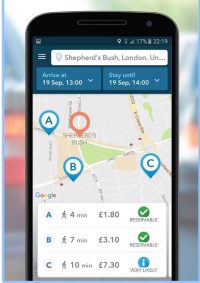Smart city talk is cheap, but who will pay the bill?
Smart city talk is cheap, but who will pay the bill?

While seemingly every major metropolis is keen to cozy up to the smart city moniker, many are leery of investing the big bucks until tangible benefits become clearer.
An article by FCW raises the question of who will pay for the smart infrastructure of the future. And more pressingly, who will make the case to city leaders that investing heavily in smart city technology makes fiscal sense.
Dan Correa said at a recent forum that local governments are reluctant to write the big checks until they are provided with “overwhelmingly compelling” case studies explaining how smart infrastructure will enhance their cities. Correa is the senior innovation policy advisor with the White House Office of Science and Technology Policy.
“There’s still a need for a killer app,” said Correa referring to a lack of clear methods of presenting specific costs vs benefits of smart city investments to state and city decision makers the.
Key benefits of smart infrastructure were laid out in a recent Information Technology and Innovation Foundation report. Examples given were automated tolling to keep traffic moving and smart metering to cut energy and water waste.
The report added that added that such smart infrastructure investments could generate unexpected productivity gains.
But it is precisely this unpredictability, particularly in economic benefits, that is leaving state and city leaders with doubts. But Correa says that this is where the federal government can provide a much needed boost to get other levels of government on board.
US DOT has not been a cheap date
He cited as a good funding model the U.S. Department of Transport’s (U.S. DOT) Smart City Challenge where 77 American cities have been competing for a $ 40 million grant to develop advanced technologies to improve the environmental impacts of travel and to reduce congestion.
“The money that DOT put on the table was significant,” said Correa.
He adds that it’s not just the $ 40 million, but the $ 100,000 the competition is providing to the seven finalist cities to bankroll their smart city proposals, which provides another crucial incentive.
A further benefit could emerge if the DOT makes the competition applications public, which Correa says will help vendors understand how to meet local needs.
“A lot of these cities, believe it or not, are thinking about a lot of the same topics, struggling with the same challenges and thinking about the same opportunities for innovation,” said Correa. “I think that’s going to be a rich dataset for exploring where there are opportunities for shared interest [and] where outside organizations” could step in and help.”
The post Smart city talk is cheap, but who will pay the bill? appeared first on ReadWrite.
(4)













